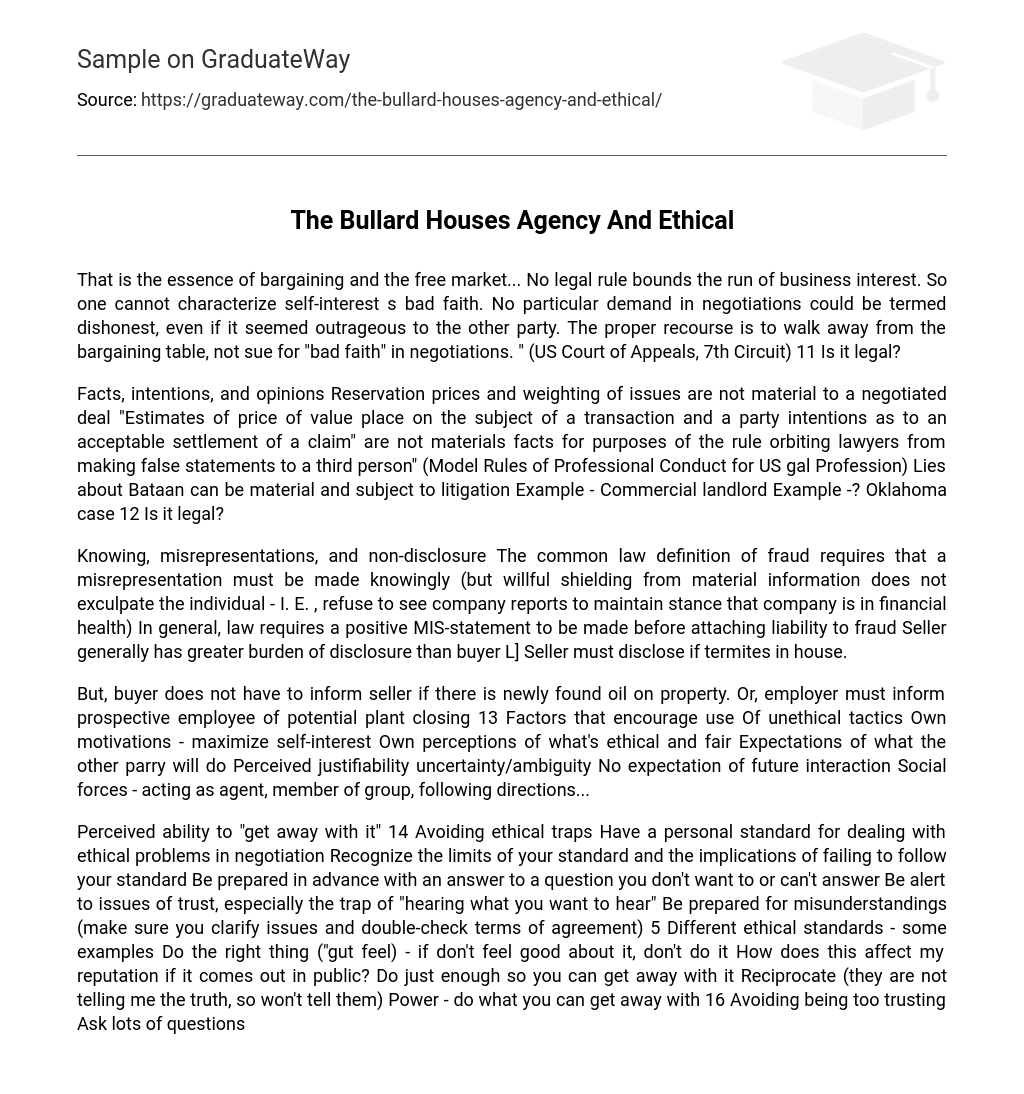That is the essence of bargaining and the free market… No legal rule bounds the run of business interest. So one cannot characterize self-interest s bad faith. No particular demand in negotiations could be termed dishonest, even if it seemed outrageous to the other party. The proper recourse is to walk away from the bargaining table, not sue for “bad faith” in negotiations. ” (US Court of Appeals, 7th Circuit) 11 Is it legal?
Facts, intentions, and opinions Reservation prices and weighting of issues are not material to a negotiated deal “Estimates of price of value place on the subject of a transaction and a party intentions as to an acceptable settlement of a claim” are not materials facts for purposes of the rule orbiting lawyers from making false statements to a third person” (Model Rules of Professional Conduct for US gal Profession) Lies about Bataan can be material and subject to litigation Example – Commercial landlord Example -? Oklahoma case 12 Is it legal?
Knowing, misrepresentations, and non-disclosure The common law definition of fraud requires that a misrepresentation must be made knowingly (but willful shielding from material information does not exculpate the individual – I. E. , refuse to see company reports to maintain stance that company is in financial health) In general, law requires a positive MIS-statement to be made before attaching liability to fraud Seller generally has greater burden of disclosure than buyer L] Seller must disclose if termites in house.
But, buyer does not have to inform seller if there is newly found oil on property. Or, employer must inform prospective employee of potential plant closing 13 Factors that encourage use Of unethical tactics Own motivations – maximize self-interest Own perceptions of what’s ethical and fair Expectations of what the other parry will do Perceived justifiability uncertainty/ambiguity No expectation of future interaction Social forces – acting as agent, member of group, following directions…
Perceived ability to “get away with it” 14 Avoiding ethical traps Have a personal standard for dealing with ethical problems in negotiation Recognize the limits of your standard and the implications of failing to follow your standard Be prepared in advance with an answer to a question you don’t want to or can’t answer Be alert to issues of trust, especially the trap of “hearing what you want to hear” Be prepared for misunderstandings (make sure you clarify issues and double-check terms of agreement) 5 Different ethical standards – some examples Do the right thing (“gut feel) – if don’t feel good about it, don’t do it How does this affect my reputation if it comes out in public? Do just enough so you can get away with it Reciprocate (they are not telling me the truth, so won’t tell them) Power – do what you can get away with 16 Avoiding being too trusting Ask lots of questions – see whether answers are consistent; watch for hemming & hawing. Restate your understandings and ask for direct confirmation (“tell me if I have this correct… “).





